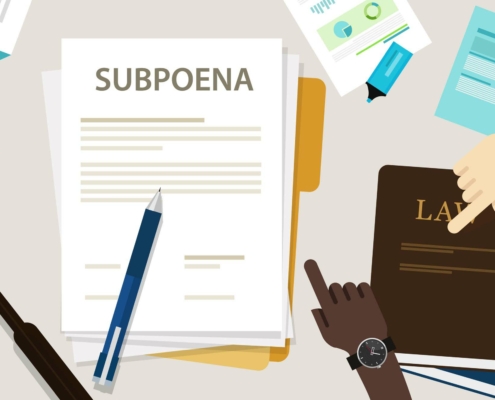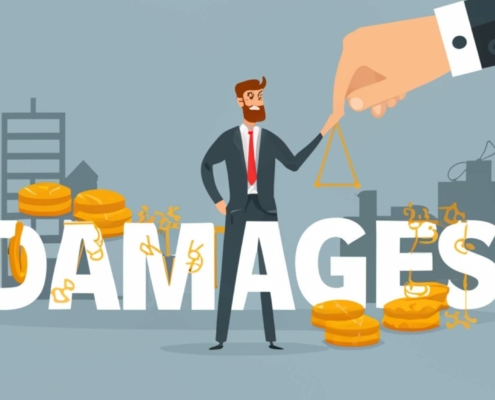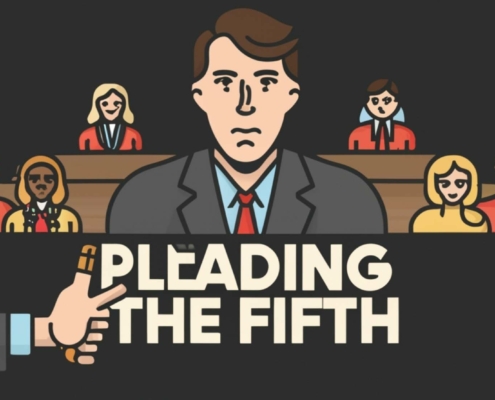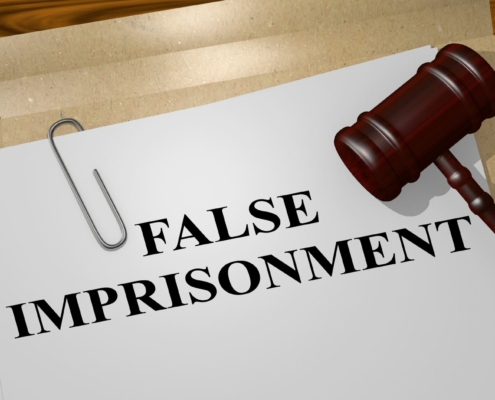What are damages?
In civil law cases, the main type of remedy that is sought is the damages, which are paged by a party in order to help that party reinstate the injured party to their original position. Usually, such awards are in the form of money. However, if a party is shown to have breached either a contractual duty or a right, they may be paid damages. These may include compensatory damages, which are awarded on the basis of real losses suffered by the injured party, and second, punitive damages, which are designed to punish the wrongdoer. The term actual damages only talks about compensatory damage, it does not include punitive damage at any cost.
In contract law, rarely are punitive damages awarded. This is because the law generally recognizes that there are cases in which it is rational to breach a contract in economic terms. This then implies that the law does not punish it for breaking the contract but sets to a position of restoration on fairly ground the party that does not defile it. This remedy might take the form of expectation interest damages, reliance interest damages, or restitution interest damages. Business litigation attorneys understands that special damages are often the only type of damages available.
In tort law, the victim could obtain compensatory damages for a broad variety of losses. These cost relate to tangible issues like medical treatment, loss of property and financial loss as well as damages that involve intangible issues such as compensation for pain, suffering or inconvenience. Where the tortfeasor’s behavior was grossly negligent or the damage inflicted grievous, the court may award punitive damages in addition to compensatory ones.
Types of Damages
Damages in civil law come in various forms: liquidation, incidental, consequential, nominal, compensatory, and punitive at times.
Compensatory Damages
Compensatory damages are money damages meant to reimburse the nonbreaching party directly for undelivered promises. In some situations, compensatory damages are easy to determine, for instance, when the contractor loses an easily identifiable profit from a construction job. Despite this, it becomes complicated in the case of special services, for example, where the contract of an artist to paint a portrait has been violated. The purpose is to arrive at the net value that would have been conversely obtained by the non-breaching party. This involves such factors as foregone royalties and possible reputational gains that may occur when a publisher defaults on a book publishing agreement. Above losses incurred, the party that has not breached deducts his or her savings or gains from alternative arrangements and this yield net damages.
Incidental Damages
Incidental damages are costs that the injured party incurs in the hiring of the mitigating loss caused by the breaching of the contract such as finding alternative goods or services.
Consequential Damages
Consequential damages deal with the harms suffered indirectly by the nonbreaching party as a result of the breach, such as the destruction of his property due to shoddy work. Nevertheless, legal costs incurred by the breach action are usually not payable unless the terms of the contract provide for this. Consequently, they should be avoidable and are not payable if they will not be so.’
Nominal Damages
In the eventuality that a breach occurs but no compensable injury occurs or can be demonstrated, nominal damages, a miniscule amount, can be given.
Liquidated Damages
In contract law, liquidated damages are designed to circumvent the problematic aspect of assessing damages, the parties may predefine the breach amount. These are enforced by the courts so long as they are reasonable and are a reflection of the Contemplated or actual damage.
Punitive Damages
Punitive damages are punitive in nature which is rare in contract law and are meant to punish the defendant in cases where the breach is also a tort. The sum is compensatory in nature, in order to correct the injustice done, and partially it is aimed to prevent future malpractices. It is also dependent on the financial capability of the defendant, and can be reduced by the judge if he or she finds it exorbitant.
Special Damages vs General Damages
It is important to note the difference between the special damages and general damages. This is short form of terms that are used to mention the nature of compensations the plaintiffs are awarded in a law case for instance, those cases of personal injury. Even though both seek to compensate for financial loss suffered, the two differ largely in essence, composition, and the nature of loss. Special damages are financial compensation for tangible, countable material losses, which occur as a direct consequence of the defendant’s acts. On the other hand, general damages refer to claims for noneconomical losses that cannot be determined clearly. A scholarly distinction between these two kinds of damages allows providing the injured party with a fair and proper rate of restitution.
| Aspect |
Special Damages |
General Damages |
| Nature of Damages |
Tangible, specific, and quantifiable financial losses. |
Intangible, non-quantifiable losses that impact quality of life. |
| Types of Losses Covered |
Medical bills, lost wages, repair costs, and other out-of-pocket expenses. |
Pain and suffering, emotional distress, loss of enjoyment of life, and loss of consortium. |
| Calculation |
Based on actual financial loss; can be precisely calculated and proven with documentation. |
Subjectively determined based on the severity of harm and impact on the individual’s life. |
| Proof Required |
Concrete proof such as receipts, bills, and financial records. |
More abstract, often requiring testimonies and a subjective assessment of impact. |
| Typical Use |
Common in cases where financial loss is directly attributable to the incident. |
Common in personal injury and defamation cases. |
| Variability |
Relatively consistent, as they are based on actual costs incurred. |
Highly variable, as they depend on individual circumstances and perceptions of harm. |
Special damages are the indemnities that stem from evident losses with demonstrable financial implications. This involves items such as bills for medical treatment, repairing costs and loss of earnings because of incapacities. The calculation for these damages is also relatively easy to quantify, which means that the costs are based on real values that occurred and can be shown through supportive documents like receipts and invoices.
By contrast, general damages apply to the losses which have a broader concept and are more general. These include both the emotional and mental effects of an injury, like pain and suffering, mental distress and poor quality of life. Awards for general damages are arbitrary by nature, as they require to put a price on non-economic losses. This often involves an in-depth analysis of how the injury has impacted the claimant’s quality of life, general welfare, and future prospects.
What are special damages?
The term ‘special damages’ has different meanings in various legal meanings based on the area of law and jurisdiction and is specific to the type of law involved. Special damages, in the field of tort law, refer to the amount that can be legally proven such as spending on car repair or on operation after an incident. These sum(s) are different with general damages which refers to compensation of unquantifiable loss like emotional tort where it is not simple to assign a monetary value.
In contract law, special damages (also referred to as consequential damages) are the ones that do not follow directly a breach of the contract but result from outside the breach, such as the cause physical injuries during a contract breach. In contrast, special damages refer to contract law that is associated with the losses that would naturally be foreseen as a direct consequence to the breach of contract. This distinction is also vital in legal actions so that the proper form and measure of damages is determined.
Examples of Special Damages In Personal Injury
In personal injury law, special damages refer to those that have can be precisely valued and measured throughout calculations. Examples of special damages in this context include:
- Medical Expenses: Medical costs because of the occurrence. These may be hospitalisation charges, surgical charges, pharmaceutical charges, cost of rehabilitations, and further medical attention in case a patient has to receive on long term basis.
- Lost Wages: Salary lost in the course of inability to attend his or her duty post as a result of the accident. This entails not just earnings lost from absence from the workplace but also loss of earning vigor, if the injury impairs the plaintiff’s capability to work in the prospect.
- Property Damage: Costs for replacement or restoration of damaged property. For example, if in an accident damages to a car are caused, then the costs of repairing the damages or, if it is beyond repair, the value of the car would be considered as special damages.
- Rehabilitation Costs: Costs of any rehabilitative treatments necessitated as a result of the injury like physiotherapy or even occupational therapy.
- Travel Expenses: Travel costs to and from visits to health professionals or specified treatments concerning the injury.
- Out-of-Pocket Expenses: Other costs attributable to the injury with which the plaintiff has to meet directly, for example, cost of medical appliances, home nursing, or adaptations to a house or car necessary by reason of a disability consequent upon the injury.
- Lost Business Opportunities: For persons or organizations, this may involve lost economic benefits or business to business opportunities that were directly linked to the occurrence or injury.
Special damages act as an alternative or a complement to general damages in personal injury cases. Special damages are easily identified as compared to general damages that largely involve psychological issues such as pain and suffering or mental torture. This is due to the fact that they are derived from real monetary damage that can be established with evidentiary documents such as invoices and receipts
Special Damages in Contract Law
In contract law specifically, the meaning of special damages, which is sometimes referred to as consequential damages, varies quite drastically. These damages are not part of limitation and occur directly because of the breach of trust.
It is generally required that in order to make a claim for special damages, a plaintiff must establish that the defendant was aware of any special circumstances that resulted in such loss. For example, take the situation where the plaintiff buys an essential component from a defendant for an urgent project, like making a product for a wedding. If the component is delivered late and as a result of the defendants delay the plaintiff does not meet his or her deadline, thus losing the sale; the profit from the sale could be considered special damage which could be claimed. The crux is that the defendant has to be aware of the fact that the order was one that required instant execution.
Other instances of specific damages in contract law could be perceived as lost opportunity costs, destroyed reputation of a company, or lost profits resulting from a contractual violation. These are the damages that are meant for the purpose of covering the actual losses suffered in the form of an immediate result of the effected breach.
Was does general damages in personal injury mean?
General damages represent indemnity for some non-specific and often immeasurable or not easily measurable losses occurring due to the fault of another. These harm include wide variety of affects that are severely felt but invisible and inherently subjective in nature. They are often referred to as noneconomic damages, as they involve losses that do not have the direct calculation number as its value.
Examples of General Damages
- General damages can encompass various aspects in tort cases, including:
- Pain, coming from the fact of the injury.
- Deformities like scars that are always there or amputations.
- Mobility impairment or disability
- Emotional pain, e. g. grief after losing a close person.
- Among the possible mental health problems is the posttraumatic stress disorder PTSD.
- Loss of consortium relates to the loss of marital aspect.
- Decreased quality of life.
- Anticipated future pain and suffering.
Calculating General Damages
Determining the value of general damages is more challenging than calculating special damages due to several factors:
- Their intangible nature.
- Lack of invoice or receipt.
- Subjectivity, which depends on the plaintiff’s own experience and sensations.
Expert testimony often plays a crucial role in evaluating general damages and their appropriate monetary value:
- Medical professionals may offer suggestions on impairments or physical functional losses.
- Pain management specialists might debate the severity of the plaintiff’s actual pain.
- Psychologists or psychiatrists as mental practitioners also may share views about emotional sufferings or mental health disorders.
The general damages are based on subjective assessment which entails several factors that cannot be quantified which include the plaintiff’s likeability, the demeanor of the attorney and the credibility of the expert witnesses. A competent personal injury attorney is aware of this and crafts tactics that will help him or her navigate around them with ease; thus ensuring that the claimant receives deserved compensation.






















 By: Brad Nakase, Attorney
By: Brad Nakase, Attorney





